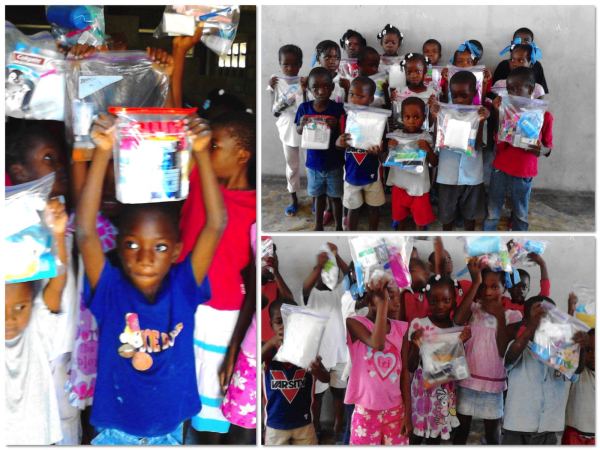Published on February 13th, 2014

Microsoft has joined with The Peace Fund to provide hygiene kits to orphans in Haiti through our partnership with Mercy & Sharing. Hygiene items were donated and assembled into kits as part of Microsoft's Corporate Citizenship Giving Program.
Mercy & Sharing is an organization that provides care and education to abandoned, orphaned and disabled children in Haiti. In conjunction with a meeting in Santa Monica, Microsoft employees brought hygiene items and put together kits for the children...a much needed item with the approaching cholera season. It may seem a simple gift, these kits can mean the difference between health or sickness, life or death.

Mercy & Sharing’s orphanage in Haiti will distribute the kits directly to kids who visit the orphanage each day, ensuring they go home with the basics they need to fight off the diseases that plague their communities.
Haiti is still grappling with a pernicious cholera epidemic nearly four years after the disease’s first appearance in the country. About 40 percent lack access to clean water, and only one in four have access to a sanitary toilet, according to the World Bank. Even if they do have safe water and proper sanitation, many Haitians are so poor that they're literally choosing between buying soap one day or buying food for their family or for their children.
Cholera spreads when people come in contact with contaminated sewage, usually through consuming unclean food or water. This happens with relative ease in communities without proper latrines, and where torrential downpours during Haiti’s rainy seasons in the spring and fall cause daily flash floods. People who contract cholera suffer excessive vomiting and diarrhea and can die of severe dehydration within 24 hours.
While Mercy & Sharing Village has access to clean water and sanitation, the threat is from contact with those children outside the village who go to school within the complex. Health education is key for everyone. Children are taught basic hygienic behaviors, including the necessity of systematic hand-washing with soap after defecation and before handling food or eating.
-

Microsoft Employees
-

Assembling the Hygiene Kits
-

Microsoft Employees Hard at Work
-
Adrian and Carmel Macpherson Join Microsoft
-
Adrian Helps Pack the Kits in Boxes for Shipping
-

Hygiene Kits

